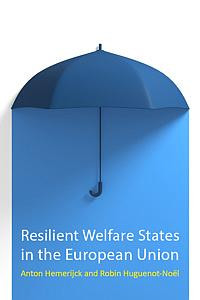
The European welfare systems, established after the Second World War, have been under sustained attack since the late 1970s from the neoliberal drive towards a small state and the market as the tool for efficient allocation of resources. Indeed, after the 2008 crash, Europe’s overprotective welfare provision of high tax, generous pensions and benefits, despite playing a critical welfare role, were blamed for its economic inefficiency and political decline. However, the EU's initial failures in tackling the spread of the Covid-19 pandemic has reframed the role of welfare systems and the need for institutional and collective action to guarantee basic security and needs and economic activity became glaringly obvious.
In this important contribution, Anton Hemerijck and Robin Huguenot-Noël examine the nature of European welfare provision and the untruths that surround it. They examine the impact of the austerity measures that followed the Great Recession, and consider its future design to equip European societies to face social change, global competition and external shocks.